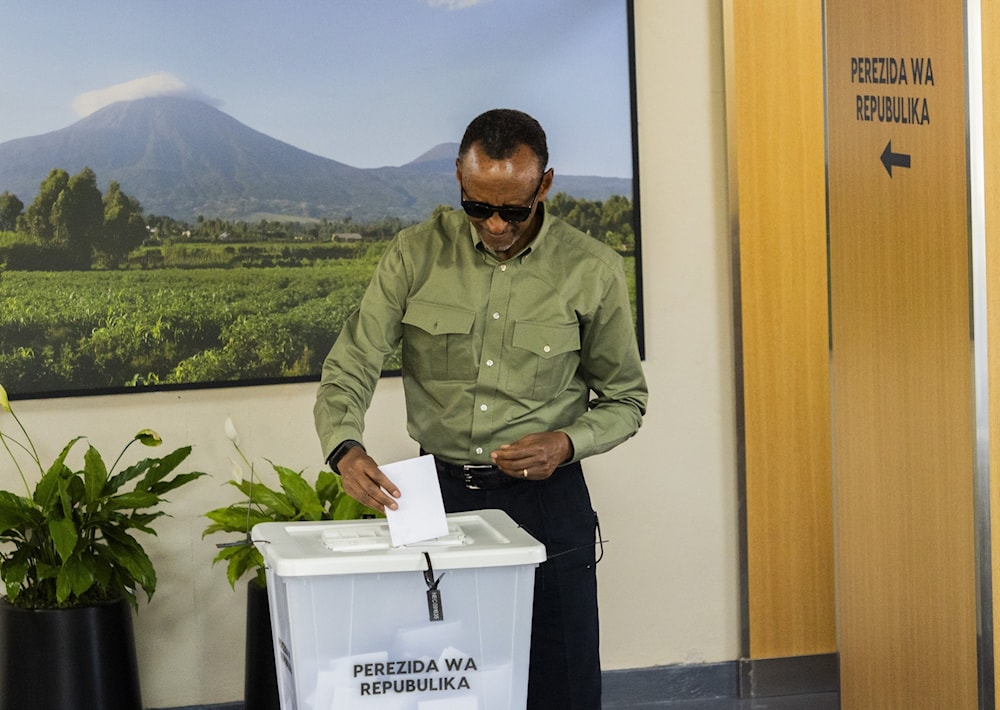Rwanda's Kagame secures 4th presidential term with over 99% of votes
The National Electoral Commission says the electoral process happened in a "safe and transparent atmosphere" for Rwandans living abroad and at home.
-

Rwandan President Paul Kagame and his family cast their votes at the SOS Gacuriro school, Kigali, Rwanda, July 15, 2024. (AFP)
Rwandan President Paul Kagame prepares himself to assume his fourth presidential term on Tuesday after securing a staggering 99.15% in partial results of the election facing two opponents.
In an address from the headquarters of his ruling Rwandan Patriotic Front (RPF), the 66-year-old thanked Rwandans for giving him another five years in office.
"The results that have been presented indicate a very high score, these are not just figures, even if it was 100 percent, these are not just numbers," Kagame told his supporters in an address from Rwandan Patriotic Front (RPF) – his party's headquarters.
"These figures show the trust, and that is what is most important," he added.
"I am hopeful that together we can solve all problems."
Complete provisional results are expected by July 20, with final results anticipated by July 27.
"In general, the electoral process happened in a safe and transparent atmosphere for Rwandans living abroad and at home," the National Electoral Commission stated.
The 66-year-old leader, known for rebuilding Rwanda after the 1994 genocide, saw over nine million registered voters, including about two million first-time voters, participate in the presidential and legislative elections held simultaneously for the first time.
Read more: Rwanda commemorates 30 years since genocide
"[Kagame] gives us everything we ask him, such as health insurance. This is why he wins by a big margin," said 34-year-old mechanic Francois Rwabakina according to AFP.
This marks the fourth presidential election since the genocide 30 years ago that claimed the lives of more than 800,000 people, primarily from the Tutsi ethnic minority.
Kagame, who commanded the Rwandan Patriotic Front (RPF) in defeating Hutu extremists and ending the genocide, was appointed president by parliament in 2000 following the resignation of Pasteur Bizimungu. He has since secured over 90% of the vote in the 2003, 2010, and 2017 elections.
He is praised for transforming Rwanda into a united nation and a regional business hub, though critics argue that his administration suppresses free speech and human rights in the country.
Read more: Rwanda seeks extradition of genocide suspects from UK in migrant deal
Since assuming office, he has led a notable economic recovery in Rwanda, with the GDP increasing by an average of 7.2% annually from 2012 to 2022. However, the World Bank says that nearly half of the population lives below the poverty line.
In the parliamentary election, 589 candidates were competing for 80 seats, with 53 of those seats elected by universal suffrage. In the outgoing assembly, the RPF held 40 seats and its allies had 11. Additionally, 27 seats are reserved for women, youth, and people with disabilities.

 3 Min Read
3 Min Read








